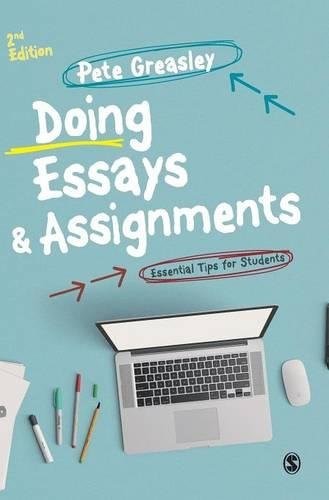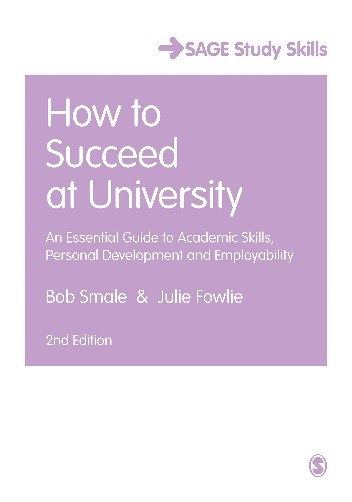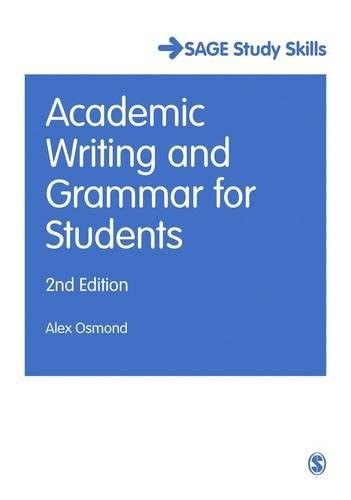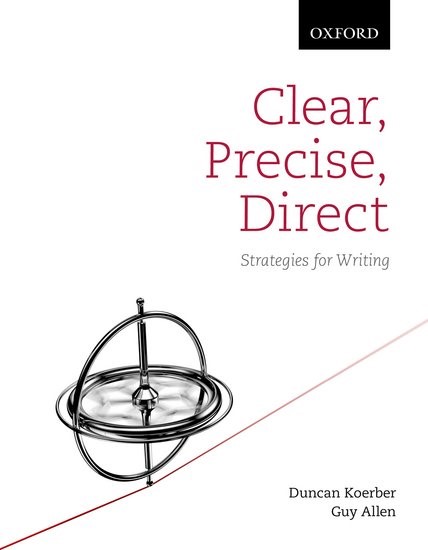
|
Aiming at fostering university students’ self-learning skills and habits, this book expounds on habits of success – persisting learning, anticipating, communicating, imagining, inquiring, contributing, listening, and perceiving. Featuring inspiring case studies and self-reflection exercises, the book will help you direct yourself towards academic success through developing skills on building accountability, teamwork, and critical thinking.
Highlights include “Critical and creative thinking” (Ch. 5), “Reading and information literacy” (Ch. 7), and “Memory and studying: Retaining what you learn” (Ch. 9).
|
 |
This book guides university students how to enhance their skills in writing essays and assignments through understanding the tutors’ expectations as well as learning goals and outcomes. You will gain an understanding of the marking process, insiders’ tips from lecturers, and practical advice on crafting written pieces. To consolidate knowledge, each chapter begins with learning objectives and ends with a chapter summary.
Highlights include “What was the question again?” (Ch. 7), “Feedback and feed forward” (Ch. 14), and “Group project work (or 'hell is other people')” (Ch. 18).
|

|
Written for university students at all levels, this tripartite book explains personal, academic, and life skills required at university and raises students’ awareness of these skills’ transferability in the workplace. Not only will you read about other students’ experiences, you can also learn practical tips and advice on developing study skills and achieving academic success. In addition, you will benefit from exploring the uses of digital technologies in learning.
Highlights include “How to develop successful examination techniques” (Ch. 8), and “How to understand what is required for your success in gaining internships, placements and jobs” (Ch. 9).
|

|
This pocket guide vividly illustrates how to develop and present clear and convincing arguments, helping university students improve their academic writing skills. With abundant tables and mind maps throughout the five parts, you will learn how to develop and organise ideas, build an argument, and articulate the academic argument with evidence in a step-by-step manner. Useful resources for academic writing are also listed.
Highlights include “What is evidence?” (Ch. 5), “Marking the argument flow” (Ch. 9), “Communicating with the reader” (Ch. 12), and “Finding your academic voice” (Ch. 13).
|

|
Covering a range of writing and grammar aspects, this book serves as a practical guide to academic writing for university students. With plenty of academic writing examples from various disciplines, you will learn how to demonstrate critical thinking and logical argument, yet retain conciseness and clarity in writing. You will also examine some common mistakes in academic writing and learn how to proofread writings effectively.
Highlights include “Basic conventions of academic writing” (Ch. 1), “Putting paragraphs together” (Ch. 4), “Referencing” (Ch. 6), and “Common mistakes and how to deal with them” (Ch. 8).
|

|
With the goal of polishing students’ writing skills, this book explicates clarity, precision, and directness in writing. The book details “enhancing factors” that contribute to writing effective and “interfering factors” that impede written communication. To help you understand these factors and apply different writing strategies, the book provides you with practical exercises and peer writing samples. You will also find inspiring quotations from professional writers and coverage about the MLA and APA styles.
Highlights include “Strong verbs” (Ch. 3), “Active voice” (Ch. 4), “Strong nouns” (Ch. 5), “Parallelism” (Ch. 7), and “Sentence variation and sound” (Ch. 8).
|